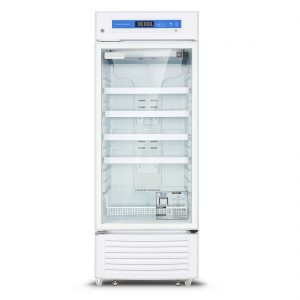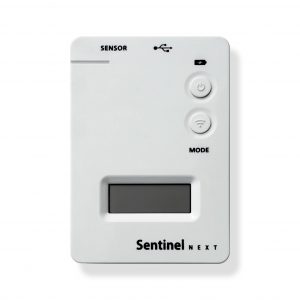Vaccine Storage Equipment
Must-Have Vaccine Storage Equipment
Vaccines are humanity’s crucial line of defense against deadly diseases. They are not only important due to their life-saving functions, but they are also valuable in terms of their monetary worth.
Healthcare facilities often lose a large sum of money due to improper cold chain management. Cold chain, as per UNICEF, refers to “a chain of precisely coordinated events in temperature-controlled environments to store, manage and transport these life-saving products”.
As the definition suggests, it is important for vaccines to be maintained in controlled environments in a coordinated manner. Even minor errors can render vaccines ineffective or even fatal in some cases, if administered to patients.
In order to avoid dire circumstances such as these it is important to take preventive steps during the storage and transportation of vaccines. The CDC has identified specific equipment that are essential in management of vaccines especially during their storage and transportation.
The two most important vaccine storage equipment include medical refrigerators and freezers, as well as temperature monitoring devices. Let’s take a deeper look at each of these pieces of equipment in terms of their features, benefits as well as importance as per the regulations put forward by the CDC.
Medical Refrigerators and Freezers
Medical refrigerators and freezers are not just recommended for usage of vaccines, but also medication, blood and its components, human tissue, biological material and the like. When it comes to vaccines, the CDC specifically recommends a medical refrigerator or a freezer (depending upon the recommended storage temperature of the vaccine) over a dormitory style one.
Medical refrigerators and freezers are the best when it comes to maintaining a stable temperature suitable for the storage of vaccines. They are also often inclusive of an in-built temperature monitoring device, that is sensitive to even the slightest fluctuation in temperature. These devices alert users whenever a temperature excursion occurs, which is when the temperature goes above or below the recommended temperature range.
Such refrigeration units are also sturdier in terms of their built. They include glass doors that eliminate the need to keep the unit open unnecessarily. Doors are also more secure as they close shut firmly aiding in temperature maintenance. They also often include locks to prevent loss of valuable medical articles or even to limit the usage of the unit to a few selected individuals.
Regulatory guidelines similar to medical refrigerators and freezers apply to portable versions of medical refrigerators and freezers as well. Apart from temperature maintenance and safe storage, these units also need to be more durable and sturdier. They need to have a long battery life that will keep the device working for as long as it takes to reach the desired destination without charging.
Temperature Monitoring Devices
Use of an additional temperature monitoring device is a must for vaccine storage. Devices such as digital data loggers involve the use of a digital probe that keeps a tab on the temperatures within the storage unit. They monitor and store the temperatures within the unit consistently, giving the user a detailed record of minimum and maximum. They also give an account of whether the unit has been out of range temperatures and the duration of the temperature excursion.
DDL’s do all this automatically, which takes the burden off the shoulders of healthcare professionals. These reports can conveniently be downloaded and saved for future usage. The CDC requires that all DDL’s in use must have a “Report of Calibration” that is indicative of accuracy of the device in measuring temperature.
The CDC recommends the use of the DDL for each vaccine storage unit, emergency storage unit as well as a backup DDL in case the primary data logger malfunctions. It is strongly suggested that the DDL’s calibration testing be done every two years according to the timeline suggested by the manufacturer.
Solutions by Aegis
Keeping in mind all the regulations by the CDC, Aegis strives to develop medical storage equipment that is CDC compliant, durable as well as user friendly. The medical refrigerators and freezers designed by Aegis are extremely sensitive to temperature fluctuations, and also keep a check on humidity and CO2 levels.
They are built to have an internal fan that circulates the air appropriately to ensure proper air flow and stable temperatures. They have an in-built temperature monitoring device with an alarm system that notifies users about temperature excursions or other concerning events.
Apart from temperature excursion alarms, the users are also notified about power failures, doors kept ajar, sensor error and low battery as these factors can also impact the stored vaccines.
Our portable refrigeration units are packed with all the necessary requirements related to temperature control and overall safety of vaccines and other pharmaceuticals items. They are made up of durable materials such as stainless steel and provide a long battery life, which are essential features for safe transportation of vaccines.
Our Sentinel Next monitoring devices as well as digital data loggers are NIST certified and meet the 21 CFR 11 requirements. They can be attached to the refrigeration unit and will provide you with accurate, round-the-clock monitoring of your equipment. Temperature excursions are promptly notified to the users through multiple platforms. They also provide detailed reports of the data collected by the device, which can be downloaded for future usage.
Do get in touch with us to know more about our products by dialing 1-800-796-2344 or email us your queries and doubts at support@aegisfridge.com.




